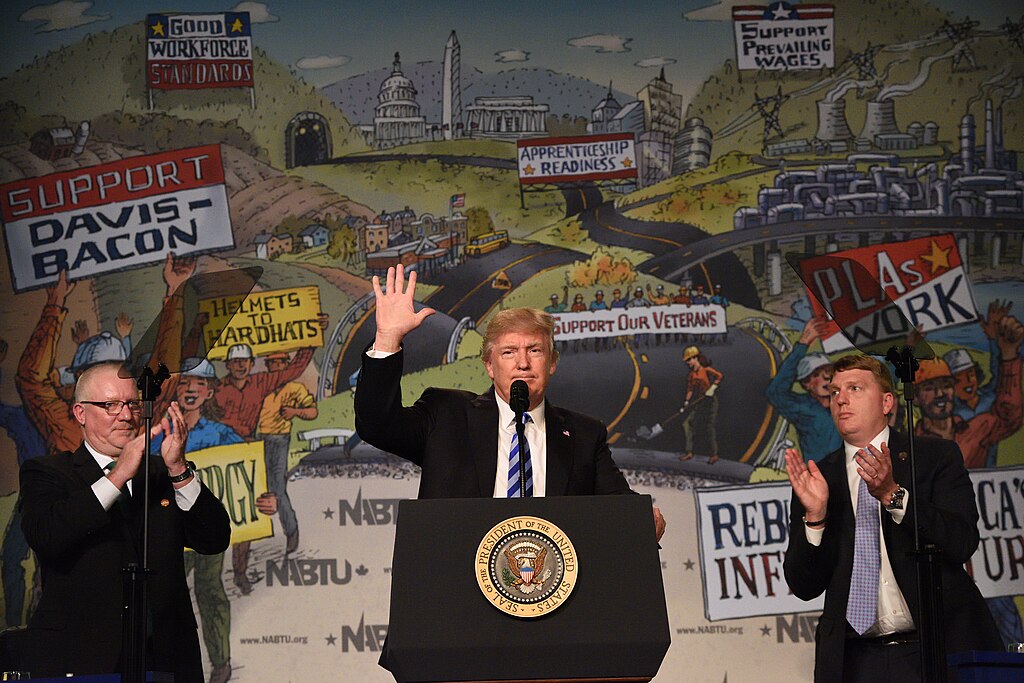A whistleblower has come forward with allegations that former FBI Director James Comey authorized covert operatives to infiltrate Donald Trump’s 2016 presidential campaign, allegedly embedding “honey pot” spies within Trump’s team. These operatives reportedly traveled alongside Trump and his staff during campaign events, purportedly to gather intelligence on the then-presidential candidate’s inner circle. This accusation has sparked significant controversy, with critics questioning the ethics and legality of such tactics if proven true.
The whistleblower, whose identity remains confidential, claimed in testimony that Comey initiated an "off-the-books" operation designed to monitor Trump’s activities and associates. These alleged efforts, described as predating the FBI’s formal investigation into Trump’s ties with Russia, reportedly included using undercover agents to pose as supporters or aides who would gather intelligence from within the campaign. The accusation centers around the use of "honey pot" tactics, a term for covert operatives who aim to cultivate close relationships to elicit information or influence their targets. If substantiated, these actions could raise concerns over potential misuse of FBI resources and tactics for political surveillance.
Legal and ethical implications of such operations are now under scrutiny. Critics argue that deploying “honey pot” agents to shadow a presidential candidate could violate legal boundaries and infringe on civil liberties. Former FBI officials and legal experts note that such methods, if deployed without oversight, could be seen as an abuse of the FBI’s authority. Others argue that the FBI has historically engaged in undercover operations to protect national security, though often with more publicized oversight and regulation.
Comey’s tenure as FBI director has been marred by criticism from both sides of the political aisle. While his decisions during the 2016 election cycle—most notably his statements regarding investigations into Hillary Clinton’s emails—were heavily scrutinized, the emergence of this whistleblower testimony adds another layer of controversy to his legacy. Comey has yet to comment on these new allegations, and current FBI representatives have declined to provide specific responses, citing agency policy on ongoing reviews.
In Congress, key lawmakers have called for a closer look into these claims, with some suggesting that Comey’s alleged actions, if true, point to an unregulated and potentially biased use of FBI surveillance capabilities. The House Judiciary Committee, responsible for oversight of the FBI, is expected to explore the whistleblower’s allegations in upcoming sessions. “If these claims are accurate, this represents an alarming disregard for campaign privacy and legal protocols,” one committee member commented.
Supporters of Comey and the FBI, however, caution against quick judgments. They argue that the agency has an obligation to monitor threats, particularly when it comes to foreign interference in elections. Defenders assert that any involvement of the FBI in campaign settings would likely have aimed to mitigate security risks rather than infringe on civil liberties.
With growing calls for transparency and potential congressional hearings, this whistleblower's statement could have lasting effects on public perceptions of the FBI’s role in politics. The unfolding investigation may reveal further insights into the strategies employed by federal agencies in high-stakes election cycles.



 Pentagon Leaders Monitor U.S. Iran Operation from Mar-a-Lago
Pentagon Leaders Monitor U.S. Iran Operation from Mar-a-Lago  NYC Mayor Zohran Mamdani Meets President Trump to Tackle Housing Crisis and ICE Detentions
NYC Mayor Zohran Mamdani Meets President Trump to Tackle Housing Crisis and ICE Detentions  USITC to Review Impact of Revoking China’s PNTR Status, Potentially Raising Tariffs on Chinese Imports
USITC to Review Impact of Revoking China’s PNTR Status, Potentially Raising Tariffs on Chinese Imports  Trump Launches Operation Epic Fury: U.S. Strikes on Iran Mark High-Risk Shift in Middle East
Trump Launches Operation Epic Fury: U.S. Strikes on Iran Mark High-Risk Shift in Middle East  Pakistan-Afghanistan Tensions Escalate as Taliban Offer Talks After Airstrikes
Pakistan-Afghanistan Tensions Escalate as Taliban Offer Talks After Airstrikes  HHS Adds New Members to Vaccine Advisory Panel Amid Legal and Market Uncertainty
HHS Adds New Members to Vaccine Advisory Panel Amid Legal and Market Uncertainty  U.S.-Iran Nuclear Talks Show Progress but No Breakthrough Amid Rising Military Tensions
U.S.-Iran Nuclear Talks Show Progress but No Breakthrough Amid Rising Military Tensions  Netanyahu Suggests Iran’s Supreme Leader Khamenei May Have Been Killed in Israeli-U.S. Strikes
Netanyahu Suggests Iran’s Supreme Leader Khamenei May Have Been Killed in Israeli-U.S. Strikes  Trump Floats “Friendly Takeover” of Cuba as Rubio Reportedly Engages in Talks
Trump Floats “Friendly Takeover” of Cuba as Rubio Reportedly Engages in Talks  Denver Mayor Orders Police to Protect Protesters, Restricts ICE Access to City Property
Denver Mayor Orders Police to Protect Protesters, Restricts ICE Access to City Property  Trump Floats Ted Cruz for Future U.S. Supreme Court Nomination
Trump Floats Ted Cruz for Future U.S. Supreme Court Nomination  ICE Hiring Surge Raises Vetting Concerns Amid Rapid Expansion
ICE Hiring Surge Raises Vetting Concerns Amid Rapid Expansion  Russia Signals Openness to U.S. Security Guarantees for Ukraine at Geneva Peace Talks
Russia Signals Openness to U.S. Security Guarantees for Ukraine at Geneva Peace Talks  Venezuela Oil Exports to Reach $2 Billion Under U.S.-Led Supply Agreement
Venezuela Oil Exports to Reach $2 Billion Under U.S.-Led Supply Agreement  Trump to Address Nation as U.S. Launches Strikes in Iran, Axios Reports
Trump to Address Nation as U.S. Launches Strikes in Iran, Axios Reports  Trump Warns Iran as Gulf Conflict Disrupts Oil Markets and Global Trade
Trump Warns Iran as Gulf Conflict Disrupts Oil Markets and Global Trade  Dominican Republic Unveils Massive Rare Earth Deposits to Boost High-Tech and Energy Sectors
Dominican Republic Unveils Massive Rare Earth Deposits to Boost High-Tech and Energy Sectors 































